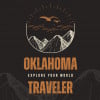Does anyone know if Bing images can be used for articles?
I looked everywhere on bing but can't find if the images can be used or not and if they can be used who do you give credit too Bing or the link?
Hi:
I believe if the Bing images do not say they are copyrighted material, than you should be able to use them in your articles. However to be safe, when editing the photo that contains your bing image, just type within the capsule, that this picture is a courtesy of Bing images, or some similar mention of where it had originated from in the first place. Hope this helps you.
JlThis is not more true of pictures than it would be of text (like hubs) found via the Bing search engine.
The absence of copyright symbol does not in any way mean that the image is public domain. There are all kinds of issues with fair use and public domain and commercial/non commercial use that it is probably best to go with a picture that is clearly labelled "creative commons", has commercial use privileges and cite it as the author requests. As far as I know, Bing does not allow you to sort images as such.
Other way around. According to that logic, someone could copy all your hubs, not credit you (which they probably wouldn't if they were copying them)...
... and that would give anyone free license to use them freely from then on since they place THEY got them from didn't credit them.
SOMEbody owns every pic you'll see. If that person ain't you, then you need their permission.
WAY cleaner to just stick to commercial use cc stuff. Proper credit, and you're done.
I've bought a subscription to an image service before... for a music video I made. That's one other option.
Tamron, the rule for all images on the internet is this:
It's copyright UNLESS there is something on or near the photo that says otherwise.
Which means 90% of the photos you see on the internet are copyright and may not be used - and that includes the images you see on Bing search.
You can use Creative Commons licensed photos provided you credit the photographer with a hyperlink to the photo or his/her website. You can use Public Domain photos freely. But in both these cases, you will see a label on the photo, or on the page where it's displayed, disclosing the status.
There is a check box in the advanced search on both Google and Bing which limits the search to Creative Commons, but it's not always reliable - and both Google and Bing say it's your responsibility to check the status of the photo.Be very careful because I just spotted my images on there for some cover sheets I created for some products I am selling on a teacher site and they did not even have a link to my site. Complete violation of my copyright. I know my rights and will be doing something about it. So do most people who publish their work online. So yeah, there is a bunch of stolen images without credit on there galore. For sure. I recognized other seller's stuff on there too. And if someone catches you using their work without their permission, they could sue you. Many pictures, including some of mine, have special phrases hidden under the layers of the image or in the same color as the background, and sign up for google alerts to track infringement of our images that way. So we got the search engines checking for us on copyright violations.
Ick. I have no idea. I usually use google image search advanced search for commercial use or morguefile. Or my own. Tracking down the individual copyright for each image is a pain but I assume if you do use the picture, credit goes to the original artist.
Bing is a search engine. It finds text on the internet, and it finds pictures on the internet. It does not own them and it does not give you permission to use them.
Most Government publications, certain press releases, and anything published before 1923 is considered public domain if that helps.
Like I said, morguefile.com (I am not affiliated in any way)is a great searchable source for photos that the authors have intentionally placed in public domain. They don't even require attricion, although I usually throw it up somewhere in my hubs anyway.
Wow, great tip! I usually use my own photos but once in a while I don't have exactly what I need. I just took a look at morguefile.com and it has thousands of great photos for unrestricted use. Thanks for pointing it out.
Thanks for turning me on to morguefile.com I appreciate it and I just joined great site and easy to understand lic. Thanks
Sorry I didn't think I was going to get such a quick reply. The reason why I asked is I have seen people here and other site give credit to both bing and Google for photos but I couldn't find anywhere about being able to use images. Some of the photo sites are confusing.
You may use any image taken from any search engine so long as:
1. It is for use in a critical review.
2. It is used for educational purposes.
3. To use as an example of a technique.
4. Cannot have a copyright logo or similar wording negating use.
5. It is not taken directly from the creator's web site.
6. You will not directly profit from its use (like clicking on Adsense adds)
7. You will not critique it's purpose or the creator's intention for its creation (technical criticism are OK)
8. You will not claim them as yours.
9. You will duly try to give the appropriate credit if at all possible.
10. Its use will not unduly adversely affect the image's potential future earning potential.
Those are more or less the main points. There have been several "experts" who disagree with these points.
If in doubt see: 17 USC 107 Fair Use Doctrine or
http://www.bitlaw.com/copyright/fair_use.html
Note" Every time that you download or click on an image that has been posted or indexed by search engines such as Google images, you are in fact potentially "violating copyright", since your hard drive copies it to your computer, albeit temporarily.Not to contradict... but to protect those who don't know how to read into these things, tossing this stuff out with the lead-in "You may legally use..." is likely to confuse people on here.
Misunderstanding of the fairness doctrine in the music field has led to belief that if it is short or altered in some way, it is allowed. It is not. If someone is sampling even a single snare drum hit from someone else, they are violating a copyright. I have been in the field, produced sample-based music, seen many contracts for their clearance, and had several discussions with music business lawyers on the subject.
Fairness doctrine as it relates to HP and images has to do with things like writing a review of websites. Using a PROPERLY CREDITED screen capture of the website would be permitted within the confines of the review.
Even if one were to do such a review, the ad revenue model of HP is such that qualification under the Fairness Doctrine is a slippery slope at best. The fairness doctrine is meant o apply to things like academic reviews.
While I don't pretend to know the case law defining the boundries of it's application, what I do know about it from other angles would tend to indicate that few if any HP hubs would qualify.
WoW I didn't know that thanks! Its so scary to use some of these photo sites with several different lic. can be confusing thanks LuisEGonzalez
The definition of commercial use contains eratia. At its core, it can be assumed that any website that has the potential for ad revenue can be considered commercial. No actually clicking needs to take place. I am not an expert, per se, but I do have a two year degree in law and have written and researched--for upfront payment--several articles on the subject.
In the case of infringement by temporary file storage, I believe it would actually be the responsibility of the site that created the file for transfer.
Regardless, although damages can and have be awarded even when infringer earned no financial benefit, most cases award based on actual fiscal damages. Therefore, while it is possible to be sued, it would be unlikely. Hubpages, however, would be the host of the copyrighted material and makes a much bigger target. That's why they would pull the hub the instant they found the material.
Ethically, the question isn't whether you CAN get away with using a copyright photo, but whether you should. As a writer, this is a no brainer for me. I wouldn't want people to use the product of my work without my permission and likewise, don't want to do it to others.MelissaBarrett: The answer given was only in reference to using an image for one of the said purposes. I agree that every effort should be made not to use images/work that belongs to someone else. But with that said in the cases when the image/work is for one of the said purposes, then I believe that there is no ethical issue. Barring the use of images/work for the previously mentioned purposes would prevent many activities to continue such as film critics/reviews, book critics/reviews, art critics/reviews etc. Even news reporting to some extend. Even your articles can be copied in part and used for any purposes which may fit one of the previously mentioned. With the key being how much of your article is actually used. In some way it seems like a "catch 22"
Even some courts have expressed an opinion which seems to ask "if the author does not want their work used why is it posted it in the first place"
Strange but true.
I disagree with one portion Greg, both academic and other sorts of reviews (including product reviews) are included. Otherwise businesses could limit reviews to only positive reviews.
You can review anything you wish.
That and the use of a picture someone else owns are two separate things.
You are free to take a picture yourself and review anything.
As for FD, I hear the same arguments all the time in music.
You don't have to be depriving them of income. They don't need to prove your song is cutting into their sales. They just have to prove you RELEASED something which contains something they own.
Case closed. You lose. On the music side, this has been hammered so many times, people don't even bother trying anymore. Sample clearance and liability waivers are deal-breakers, and standard practice now. A record label won't release your track unless you can show them where every sample came from and prove you have the rights to use them.
The medium is different, but the concept isn't. If you RELEASE something for profit, you are automatically beyond the confines of FD. Looks to me like that applies to everything on an ad-driven site.
FD was never intended to cover something like HP.
Let me be clear on one thing, my experience is limited to the use of images/photographs as they relate to formats such as HubPages.
Also, when we quote a portion of a written work, for example to show from where our information is derived like:
"Copyright is a set of exclusive rights granted to the author or creator of..." Wikipedia,copyright 21,June 2011
This is similar to when we use an image; some courts view written works and images the same.
This issue gets even more muddled since courts in different states have different opinions. So long as you use images for the purposes listed in the previous post, you should be fine.
However if an author communicates with you and demands that you remove his/her images, then by common decency you should remove them.Fair use does not reliably allow use of an entire image. I produce recognized learned documents published by a university press and I get permission to use the picture or I don't use them. Unlike text you are not using a small quote (like 1% of the total work) for purposes of discussion, you are using the whole thing--so there is no equivalence.
Fair use doesn't even actually protect you, it is just a defense you can use when sued for infringement. Either way, you take your risks when using an entire creative work (like a photo, or an essay) without the permission of the rights holder.
Think of it this way, imagine someone found you avatar on a forum using Bing. Then they posted a hub analyzing why your personal appearance was deficient and could be improved with cosmetics. Fair use?Yes and No. Your avatar could be used as a critique for how your hair or your make up could be "improved" but this would be pushing it.
However if your avatar image was used to critique how the lighting, how the format, the cropping, clear focus instead of out of focus, or any other technically related issue could have been improved, that is permissible.
As far as images, using one is permissible but using more might not. To make it even more confusing, it would also be dependent on how many images the author has posted.
Again, until all courts come to a consensus, this issue will continue to be regionally interpreted.
If you restrict fair use purely to critiquing the photographer's skills you may barely win using it as an affirmative defense (it sure wouldn't stop the stock agency or photographer from suing you or guarantee a successful defense).
But is that really what you think people are doing? I suspect 99% of uses are just to pretty something up or illustrate it. When you do that, you takes your chances.Uh, got to disagree on lots here. It's very simple. Say you go out and take lots pictures of Paris. You work hard doing that, shooting different angles and so on.
You then post them on your Paris website you have. You, and I know I, would be VERY, VERY upset if you then saw them on any other site.
Non-commercial, educational, whatever, your going to be mad. Once you take that picture you own the copyright to it, simple as that. Search engines do spider them and post them in the image searches.
However nobody has any right to then copy them and use them on any site or article they have without asking you first. It does not matter what your using them for.
To say otherwise is like taking a bike from a yard and saying it's ok because your using it for educational purposes.
Many sponsors, retail online stores and so on allow and even encourage you to use their images, as long as your using them to drive traffic to their site.
Plus all the other places mentioned here that is designed to find non-copyrighted images. But basically just about any image you see in any search engine search is off limits.You make some good points. however the bike analogy is incorrect since by taking the bike you would be depriving the owner from any further use/benefit.
The courts have delineated certain exclusions from copyright for the general benefit (sort of for the general good) and to allow for a certain degree of commercial entrepreneurial free flow.
This will rarely apply if the image used is one of a kind, and its use by anyone other than the owner would severely damage the future potential commercial use of it (like if you had the only known photo of an alien).
Although it appears unfair and confusing that is what is currently held by most courts.
It the argument or line of logic that you propose is followed; that any image you see in any search engine is off limits, then places like Google would not index or display them, since they would be liable under this line of thinking to be sued by millions of people. Further, search engines index images to be used as a response to an educational/research type query; to answer/give an example to a question initiated by a search.Uh huh. That logic would then also apply to your hubs or any text you write online. I like your latest hub and I got an educational site so I don't need to ask you if I can just copy it.
All I know is that if anyone uses my images for any reason at all they are going to get a DMCA take down notice and their hosting is going to get the same notice.
This happens thousands of times a day all over. There are people paid full time to do nothing but file DMCA notices of coped images.
Let's just agree on this, unless you asked and got permission or know for sure the image is not copyrighted,,,,, don't use it.
For those who don't understand this bit as well:
The concept of whether or not something is copywritten:
An author or photographer does not have to do anything to own their work or have property rights regarding it. They don't need to register it or anything like that. This isn't like a patent.
They took the pic: They own it.
They have full rights to it.
They only way for YOU to have rights to it is if THEY give you those rights.
Let me simplify this whole debate:
If you don't have somewhere in writing that you MAY use someone else's property, then you are, in fact, violating their property rights by doing so.
CC stuff is the way to go... there's a written record of them saying you can use it. If you can't find what you want that way, take the pic or draw it yourself... or pay for some sort of image search service where you purchase the right to use additional images.
Anything else is a violation of someone else's property rights.
If you want to clip magazine pics and put them in your scrap book at home for personal viewing, feel free, but be clear: This is a commercial website.You are right, every single image should be obtained by permission from its owner, but the law makes exceptions.
The taking my hubs and using for educational purposes metaphor would not be permissible unless you took less than 1% of the total product.
Search engines know exactly what they can and cannot do, technically they do not display the image, they never remove it from its location online. Thus you are technically looking at it through Bing, not looking at it on Bing--which would in fact not be legal.
Correct, you see them through Bing, but Bing "copied " them from somewhere else and displayed them on Bing, so really you are seeing them at Bing, which is nothing more than a directory to other destinations.
But the fact remains that if some of the arguments presented here were to be "written in stone" , with no exceptions or flexibility, then Bing or any other search engine wouldn't bother to display images.
Again, we are going back and forth with this. All points have some validity, but the rulings remain to this day; to allow for some flexibility/ exceptions.
Hope this is not considered off topic. How do people check if their images are being used without their permission? Is it as simple as checking text in a search engine?
Trying to find that out is very hard. There is no way to check via text because an image, most of them, have no text.
Now, I name all my images the keyword I am going after. So if someone copies my picture that is named "big-brown-lego-blocks.jpg" you could do an image search for that term.
However most people never name their images or even change the image name. So most of the time there is no way to check.What Bill Manning is saying is totally correct, unless the image has some text to identify it, it is very difficult to locate.
Actually it is very easy, you can use Tineye.com or the new Google search by image http://www.google.com/insidesearch/sear … htmlsearch
You learn something new everyday, thanks psycheskinner I was not aware of this.
The google thing is why you can expect some of the stock agencies to be getting more active in sending the ol' DMCAs. Makes it a lot easier just to search for your top sellers as part of routine diligence. These are the works they want to ensure never get categorized as "orphaned" and so arguably public domain.
Ohhh, I had no idea about that site. Thanks, that does make it a lot easier.

some good articles written lately about how these things are changing the game... expecially as relates to mobile searches.
Ex... someone has an iphone, takes pic of product logo, and google does the rest.
Lesson learned from that article: Put your name or website name in the description of every pic or logo that relates to you.Maybe this will add some more clarity:
http://www.thelivingmoon.com/01library/ … irUse.html
Of special interest is the 3rd paragraph. The rest deals with similar yet distinct situations.
and :
http://www.nolo.com/legal-encyclopedia/ … 30100.html"In most cases, the lack of commercial gain is necessary for a claim of fair use"
So, you'd have to make it a non-commercial hub *and* meet the other requirements for fair use.To try to keep things simple: Just about anything labeled as "creative commons" can be used. I believe Bing has a check button for that as well in the advanced search. If it's not lableled, it's always best to ask before you use the image.
Related Discussions
- 73
Being charged for using an image without permission!!!? Help
by Lee 8 years ago
I have not used hubpages for around a year and have recently started to get back into it, I must admit that in the beginning I was a little Naive and posted images into my hubs willy nilly without thought of where they came from. I have recently recieved an email from a photo place saying that I...
- 11
How to give credit to photos if you are using random photos from google search?
by Jasmeet Kaur 12 years ago
How to give credit to photos if you are using random photos from google search?
- 20
can ı use a picture obtained from google image search at my hub?
by ofmelancholy 15 years ago
Picture covers bon jovi by the way.
- 16
Is it okay to take photos of my book covers or pictures in my books?
by H Lax 13 years ago
Is it against copyright laws to take a photo of the cover or pictures inside my books to use in my hubs? or photos of portraits/paintings from unknown artists I have on my wall?
- 9
How Important is it to Credit Images on HubPages?
by Jeremy Gill 8 years ago
How Important is it to Credit Images on HubPages?Okay, the obviously the textbook answer is that we need to credit all our images. However, the reality is most Hubbers, even the most successful, often only source an image by linking to it, which is only technically part of the crediting. Almost...
- 29
Questions About Pixabay
by EricDockett 7 years ago
I notice a lot of people recommending Pixabay lately. Does anyone know anything about their process for vetting images uploaded by contributors?In other words: What's to prevent someone from stealing copyrighted images and uploading them as their own?I used images from "free" sites when I...

















